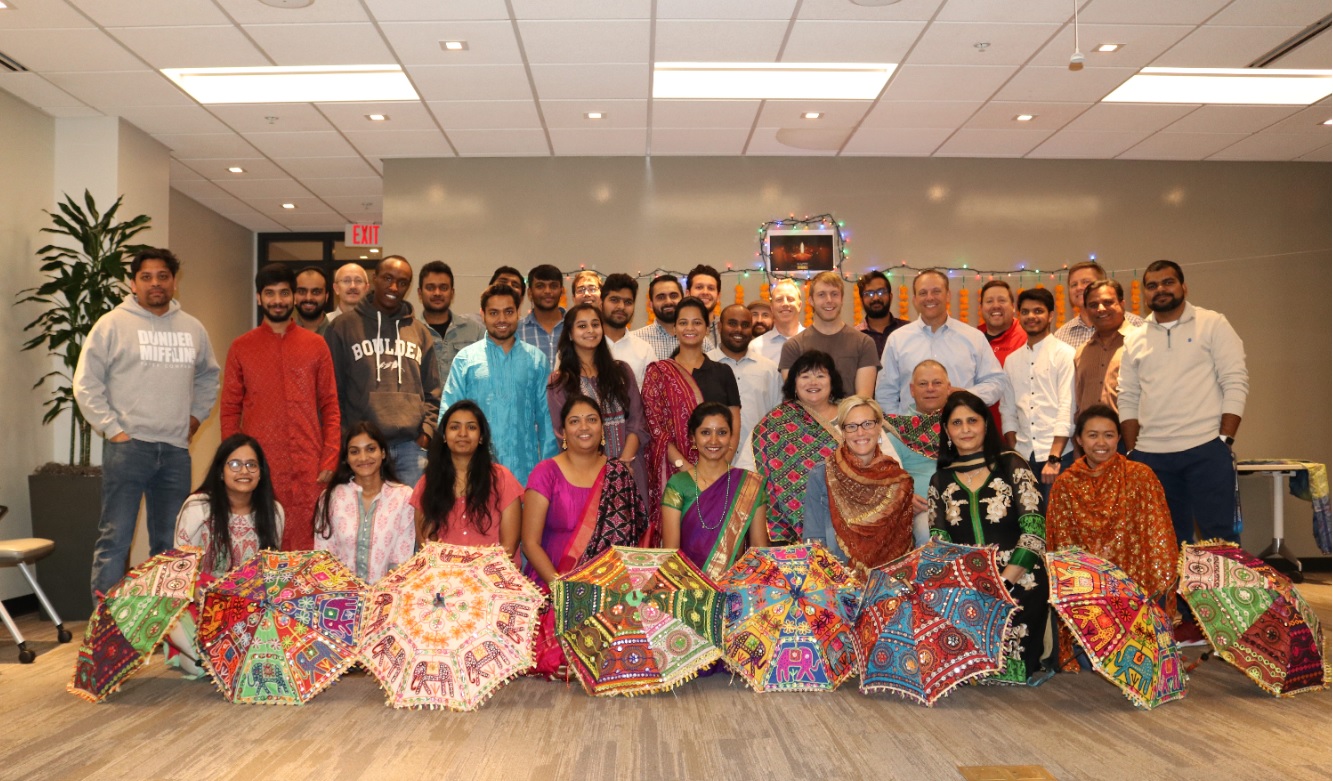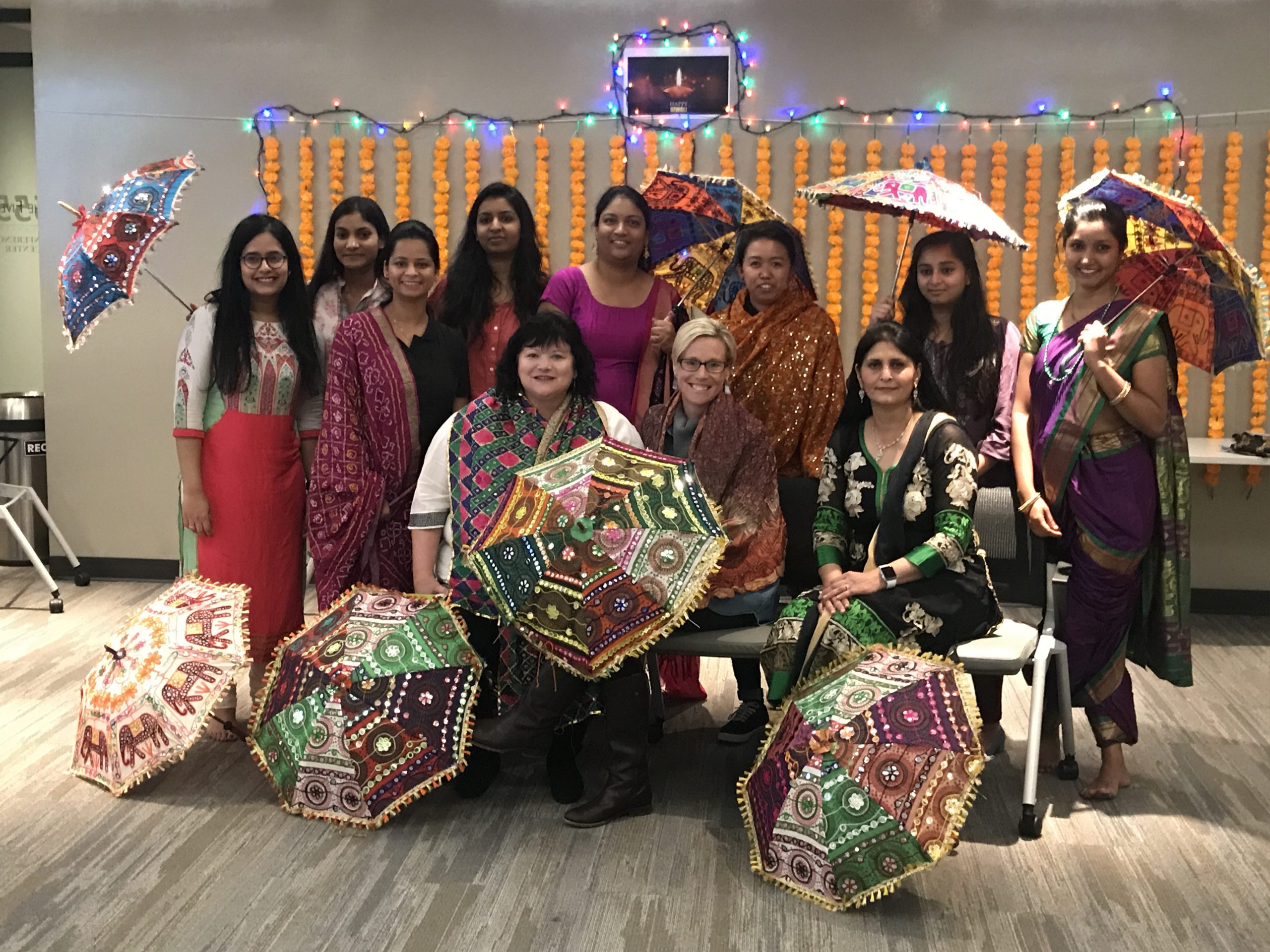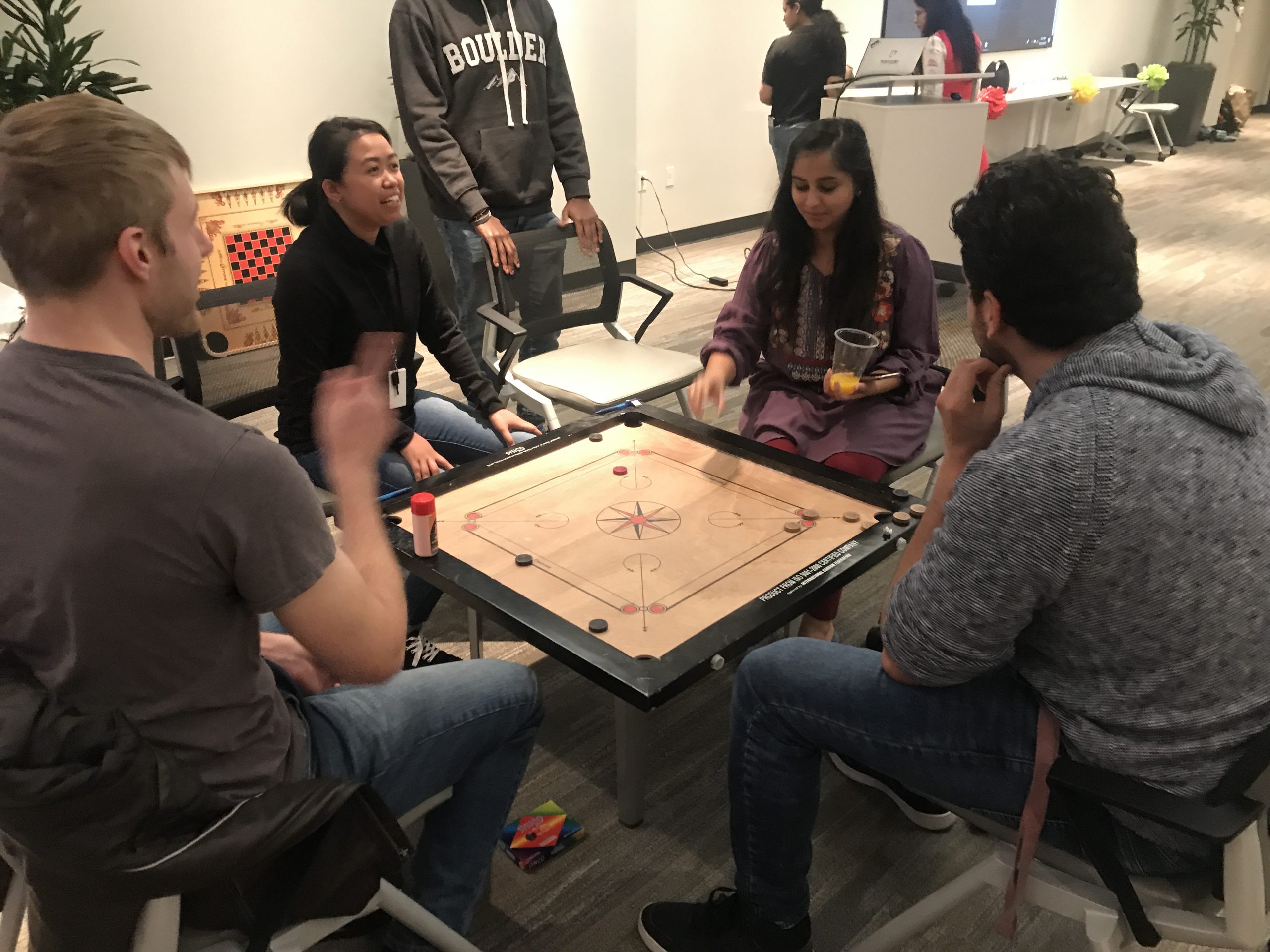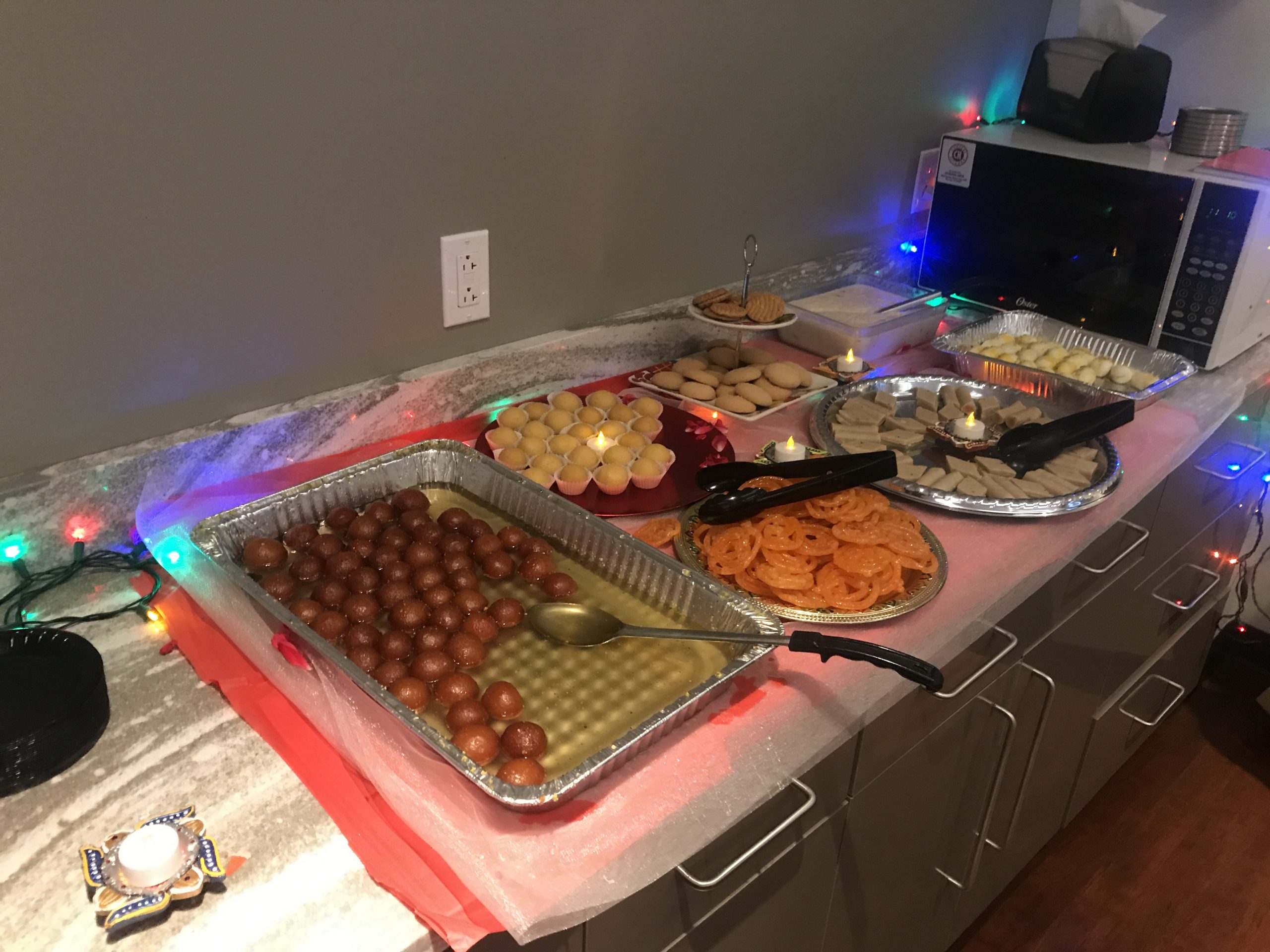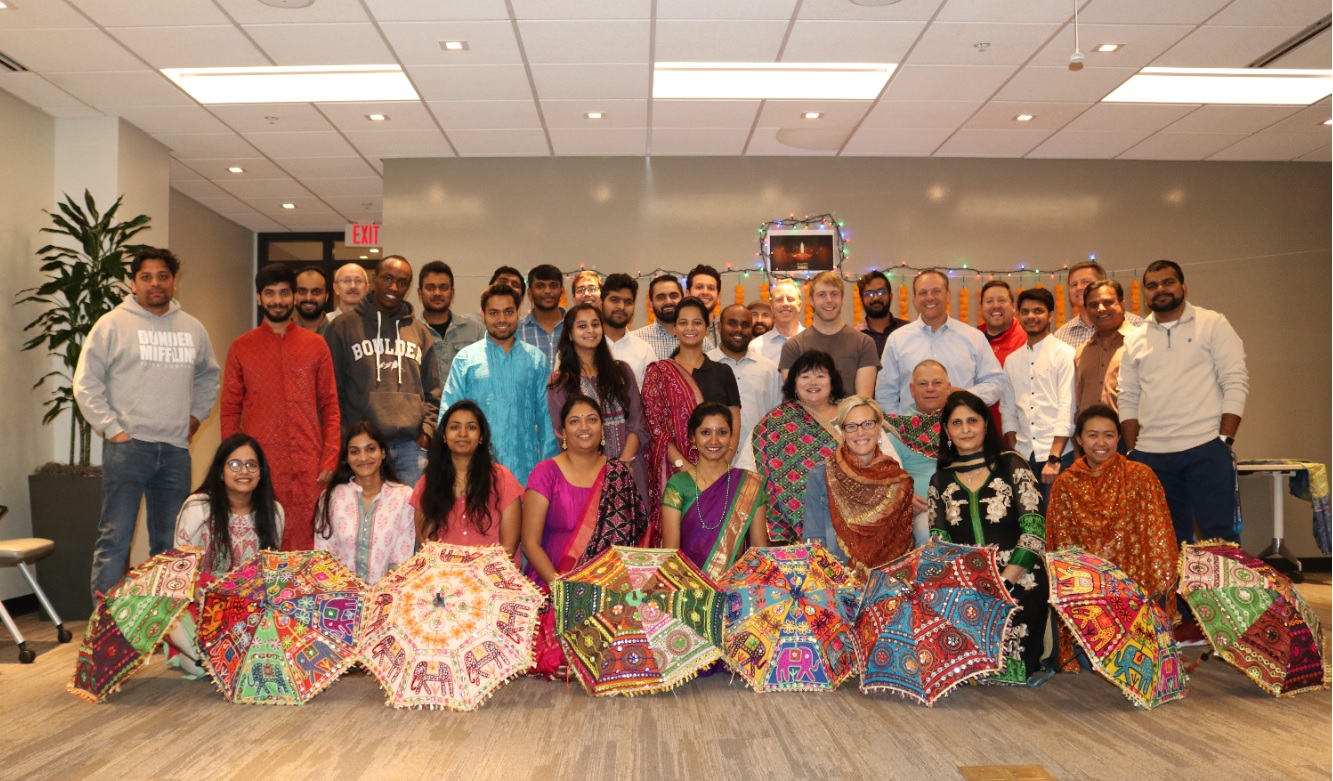On October 25, colleagues from our global headquarters gathered to celebrate Diwali, the Festival of Lights. The event included traditional Indian cuisine, games, music, and more. Our colleagues had a great time learning about some of our peers’ culture and joining in on the fun. We even started the event with an intense game of musical chairs and are already looking forward to next year’s celebration. Take a look at how our colleagues celebrated.
What is Diwali?
Diwali is India’s biggest festival and is practiced by millions of people. Diwali originated as a Hindu holiday, but is celebrated by various religions including Hinduism, Jainism, Sikhism, and Buddhism, and across many regions of India. Each religion and region has different historical events and stories around the festival. However, the festival represents the same ideology that light over darkness, knowledge over ignorance, and good over evil prevails. In fact, the word Diwali derives from the Sanskrit work “dipavali” meaning “row of lights”.
The 5 Days of Diwali
Diwali lasts five days each year. Each day has their own story and significance.
- Day One: Dhanteras – Falls on the 13th day of a lunar fortnight on the Hindu calendar. This day celebrates prosperity and is typically celebrated by shopping for gold and silver. It is said that Goddess Lakshmi came out of the churning ocean on this day and was met with a special puja (ritual).
- Day Two: Chhoti Diwali / Narak Chaturdasi – Legend states that Krishna destroyed the demon Narakasura on this day, freeing 16,000 imprisoned princesses. This day is spent in various ways, but is most known as the day of rest. Some take a ritual bath before sunrise and prepare for the next day’s festivities.
- Day Three: Lakshmi Pujan – This day coincides with the last day of the dark fortnight of the lunar month, or the new moon, and is the height of the festival. Lord Rama is said to have returned home after his exile on this day. Homes, temples, and communities are adorned with lights. Families gather and wear their best outfits to celebrate.
- Day Four: Govardhan Puja and Gudi Padwa – The fourth day has various meanings across India. Some celebrate it as the day when Lord Krishna defeated Indra, the god of thunder and rain, to save the farming communities. Another interpretation of the day references Parvarti and her husband Shiva playing a dice game in which Parvarti wins. Shiva surrenders his adornments to her, and because of this, the day is celebrates the bond between husband and wives.
- Day Five: Bhai Dooj – Celebrates the brother and sister bond. Brothers travel to visit their sisters who prepare them sweets and pray over them. Some say it symbolizes Yamuna welcoming her brother Yama, while others say it symbolizes Krisha going to his sister’s, Subhadra, after he defeated Narakasura.
At Perficient, we continually look for ways to champion and challenge our talented workforce with interesting projects for high-profile clients, encourage personal and professional growth through training and mentoring, and celebrate our people-oriented culture and the innovative ways they serve Perficient and the community.
Learn more about what it’s like to work at Perficient at our Careers page. Follow us on LinkedIn, YouTube, Twitter, and Instagram.
